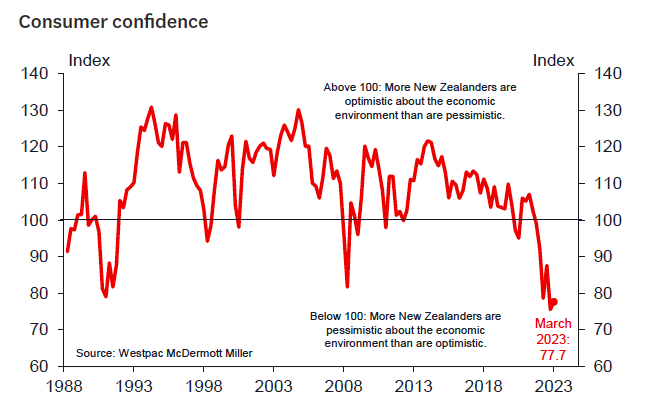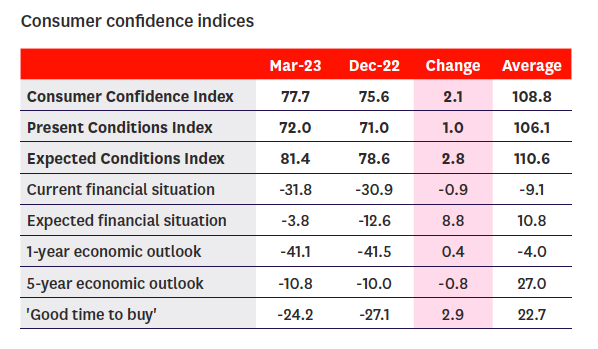Despite a slight uptick, consumer confidence continues to languish at extremely low levels

Consumer confidence has slightly lifted in the March quarter but remains at extremely low levels, as Kiwi households continue to grapple with skyrocketing living costs, higher mortgages, and a deepening downturn in the housing market.
The Westpac McDermott Miller Consumer Confidence Index increased by 2.1% points to 77.7 in the first quarter, well below the long-term average of 108.8 and off the back of a sharp fall over the past year.

In the Westpac report, Satish Ranchod (pictured above), senior economist, and Nathan Penny, senior agri economist, said the number of New Zealanders who are pessimistic about the economic environment continues to outweigh the number who are optimistic by a wide margin.
The present conditions index was up 1% to 72.0 from the December quarter, while the expected conditions index gained 2.8 points to 81.4.

“Weakness in consumer confidence and mounting financial pressures are already weighing on household spending appetites,” the economists said.
Household finances are being squeezed on several big fronts.
Housing and utility costs were up 8% over 2022 and food prices increased by a massive 12% in the year to February, with large increases looking likely should inflation remain elevated over the year ahead as predicted.
Around half of all mortgages will come up for repricing in the next 12 months, with many borrowers refixing at much higher rates, and in some cases, up to two to three percentage points.
There’s also the continuing downturn in the housing market that’s compounding the pressure on household finances, with house prices across the country tumbling by an average of 17% since November 2021. A fall in prices represents a sizeable knock to many households’ net worth, as a large chunk of New Zealanders’ wealth were in owner-occupied or investor housing.
“With those pressures set to become even more pronounced, we expect to see increasing numbers of households winding back their spending over the year ahead,” Ranchod and Penny said.
Use the comment section below to tell us how you felt about this.



